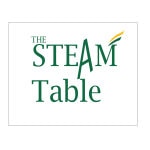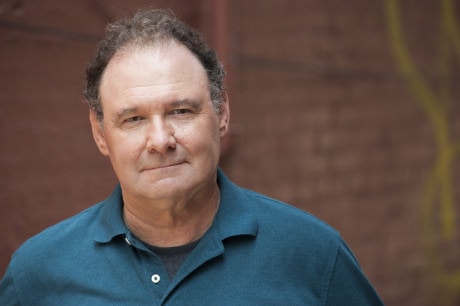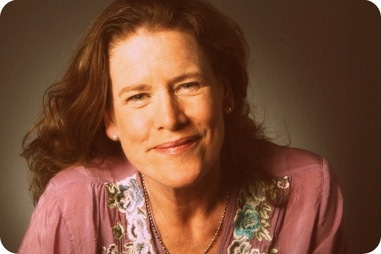What is the arts role as a means to spark creativity for the American workforce in the post-recession world?
Much is being said about keeping the competitive edge of the United States through what is known as STEM education (science, technology, engineering and mathematics). I noticed that the arts seem not to be included in the acronym STEM.
Are the arts and arts education not in the picture in our ever increasing technology-based environment of creative thinkers, innovators, and risk takers? So, I went to someone I knew to be interested in these issues, Kevin Murray at the George Mason University School of Theater to find out more.

The new program is called the STEAM Table. The acronym for Science, Technology, Engineering, Arts and Mathematics.
According to Murray, STEAM provides for “a gathering of like-minded individuals from throughout the region and from many walks of life, who hold the common belief that creativity is key to any industry’s success.” A core value is to “examine and celebrate all the elements found in STEAM, and encourage stimulating creative thinking and discovery for the 21st century”.
For Boeing, the interest in the STEAM Table program is clear as well. “For nearly a century Boeing has been at the forefront of innovation and we intend to be there for our second century. We believe that innovation flourishes when the sciences and the arts meet. Critical skills, creativity and a strong foundation in math and sciences are essential to a 21st Century innovative work force. Programs like the STEAM Table can help meet these needs in new and exciting ways as they blend these elements in the community.” said Daniel C. Beck, Director, External & Advocacy Communications, The Boeing Company
The STEAM Table will feature a series of events leading up to a Discovery Forum to be held on October 3, 2015 at the Hylton Performing Arts Center, Manassas, Virginia. The Forum will be a day-long event to explore new approaches and solutions to the challenges of nurturing a creative society.
______
I interviewed George Mason University’s Kevin Murray and Kaiulani Lee.
David Siegel: What was the impetus for the STEAM program?
Kevin Murray: I have always believed that inclusion of the arts in education was one key to success in life. I have witnessed first-hand its positive effects on students of all ages: enhancing confidence and communication skills, teaching a high level work ethic, lighting the pathways to problem solving, creative thinking, playing (and working) well with others, to name a few.

What are the expectations for STEAM?
My hope is that we will ask the right questions, and perhaps find a common language and opportunities for collaboration across many disciplines. We will raise awareness that not only are the arts important to our culture and to our economy, but that it’s already a part of our national DNA if we would only sit up and recognize it.
How will the STEAM program affect student learning?
There are studies that show an increase in productivity, improved grades, and stronger confidence found in students for whom the arts were made available in elementary school. I currently review student applications seeking admission into the School of Theater at George Mason University, and I see many essays about how theater, music, or dance helped the student combat bullying, feelings of persecution, or low self-esteem.
Discovering a passion helps knock away these obstacles. Life gets a little easier, and more doors open to opportunity. For many, involvement in the arts unlocks this passion. Middle schools and high schools across the country are beginning to include STEM and STEAM programs, but I believe more are needed in order to make a difference. I am working with Mason students now who were exposed to STEAM programs before college. I learn as much from them as they do from me. I call them my STEAM Dream Team.
Please tell me about STEAM events?
Our programs revolve around three important topics that pertain to the arts and sciences: Gender equality, environmental science, and aeronautics.
To highlight the STEAM initiatives, our School of Theater chose the Season of Innovation as its theme for 2014-15. Two of the plays, Sarah Ruhl’s In the Next Room or the Vibrator Play, and Shelagh Stephenson’s An Experiment with an Air Pump, landed in the Spring 2015 part of the season… And with Kaiulani Lee’s one-woman, A Sense of Wonder, in which she portrays writer and environmental activist Rachel Carson, I realized we had three powerful plays about women navigating a male-dominated world on the brink of scientific discovery.
A Sense of Wonder will also connect to an event this summer, The Rain Project, a sustainable water management installation by Changwoo Ahn, Mason Associate Professor in Environmental Science and Policy, which will blend aesthetics, nature, and a filtering process to reduce pollution in Mason Pond on our campus.
The culmination of STEAM events will be our Discovery Forum on October 3, at the Hylton Performing Arts Center in Manassas. It will promote a crossroads for discussion, inspiration, and awareness for STEAM-related issues.
That evening, we will present a celebration of aeronautics in honor of our Presenting Sponsor, Boeing. To Swing Through the Sky looks at the twin evolutions of jazz and flight in 20th century America and beyond, and will feature the Metropolitan Jazz Orchestra live onstage with archival video, elements of Dance and Theater, and narration crafted by author and filmmaker Paul Glenshaw.
What do you want students to come away with after seeing a STEAM event?
STEAM should be a natural part of our culture. Not an afterthought, not a mission, not a vulnerable line item, but the normal way we live our lives and educate our children:
- an understanding that art permeates everything we do, but sometimes in ways that are not apparent to all.
- a willingness to advocate. We must insist that the arts be considered as important as all the other STEAM subjects—not more, not less. It cannot be the first thing cancelled when budgets are trimmed.
- a realization that the arts are a primary focus and a priority in almost every modern culture on this planet.
- you have permission to knock down the silos. Artists must talk to scientists and mathematicians, and vice versa. Artists who associate only with other artists are limiting their world view. The same is true of any profession.
STEAM events are to begin with A Sense of Wonder, a one-woman play in which George Mason University professor and Obie Award-winning actress Kaiulani Lee portrays environmentalist and public figure Rachel Carson (1907-1964). Carson was the author of the groundbreaking book Silent Spring that focused on the effects of overusing pesticides on the environment. The performance is scheduled for February 6th at the Harris Theatre, at George Mason University.
David Siegel: Tell us about the connection between the play A Sense of Wonder and STEAM.
Kailulani Lee: People are tired of doom and gloom scenarios whether it’s about the environment and climate disruption or corruption in politics and big business. The last thing most students want is to inherit more problems, more bad news as they are embarking on their lives.

I think one of the reasons A Sense of Wonder has been so successful across the world for over 20 years is that the play is about courage and love. It’s about an individual standing up against many of the shadowy aspects of our society and against all odds, winning.
When people feel powerless to affect change they can become apathetic, or cynical. Carson’s story invites an alternate route. Her life demonstrates that we each have the ability to make an enormous difference in the world. The hidden power of the piece is that it is a play, not a lecture, a story that pulls the audience in and before they know it they are caught in the magical realm of possibility.
https://www.youtube.com/watch?v=6ZrbpKKcK0w
LINKS:
Learn more about STEAM here.




